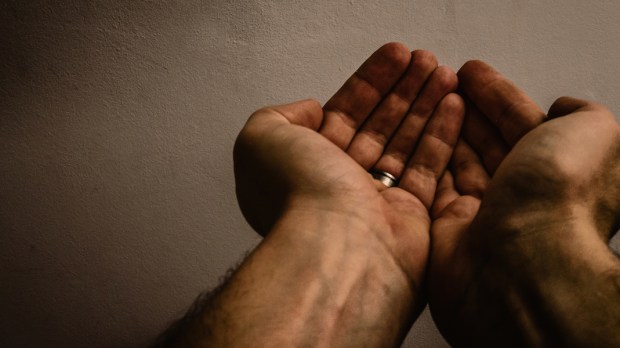We all seek happiness. If we ask someone if they want to be happy, they’ll undoubtedly say: “Of course!”
Frugality ennobles those who practice it and helps them to be happy. It’s like a tiny but fundamental piece in the puzzle of life. It is a way of life that germinates in the spirit giving us inner peace. But in order to live with frugality, it’s essential to know how to find balance in the things we have. We shouldn’t seek frugality only as self-denial or conformism to a fad, but as something that benefits us as a person, that improves our life.
The economy of consumerism revolves around feeling unhappy. It relies on us thinking, “I need these shoes to be happy,” or “The day I get that car I will be happy …”
However, if we are happy and are aware of being fulfilled, we won’t look for superficial happiness in new shoes or a new car and, therefore, we’ll be more frugal. Moreover, frugality isn’t strictly a matter of reducing consumption as much as possible, but of living with detachment and gratitude.
It’s very easy to distinguish the happiness of people who have inner order and serenity, from people whose exterior is not in harmony with their interior.
At this point, perhaps the first question to ask ourselves is: “Do I want to seek happiness?” And secondly, “Where do I begin to live the virtue of frugality if I want to change my lifestyle together with my family?”
To begin with, we must examine what we would need to change within ourselves in order to pursue this virtue. Being frugal requires self-knowledge and self-control. Are we willing to foster moderation, temperance, and sobriety?
Once we have taken this step of commitment, we can begin to make a mental journey through each of the spaces and habits of our daily life and locate which habits or material things rob us of peace. Next, we should also analyze in which areas of our life we can be more careful. For example, we can analyze where we can reduce the unnecessary consumption of energy (car, heating, electricity), what products of daily use are more sustainable, how we can recycle more effectively, and whether we are thoughtful when it comes to satisfying our needs.
When we move to a new home or change our clothes for a new season, it can be a perfect occasion to reflect on our real needs and, consequently, sell or give away what we don’t need, always seeking to give our material things a second life.
What captivates me most about the virtue of frugality is the aspect of learning to give each thing its proper value. Our actions, decisions and purchases become something more than an impulsive reaction to the craving for immediate satisfaction, the imperious need to satisfy a whim, or the illusion of filling an emotional hole. Everything acquires a meaning, a reason for being, in the light of the common good and responsible consumption.
There are many benefits of practicing frugality:
- It helps us to know and regulate ourselves. It enables us to become masters of ourselves. It puts order in our sensitivity and affectivity, in our tastes and desires, and in our deepest tendencies: in short, it helps us find balance in the use of material goods, and helps us to aspire to the greater good (see Catechism of the Catholic Church, n. 1809).
- It makes us more creative and less capricious. Frugality greatly develops our creativity, because it invites us to make the most of all our resources and discover their true utility. It’s possible to give old things a chance, and to find beauty in simpler things as well.
- It nourishes higher-quality human relationships. If we practice frugality, we will recognize much better the respect and love of the people around us. Frugality encourages us to live more in the present, with gratitude, aware of and connected to all the beauty that is in each human being.
- It helps us to tolerate frustration better. Frugality emotionally educates us to realize that we cannot always have our desires satisfied.
Happiness does not lie in having more things or in having all our wants fulfilled. Frugality is a good guide to help us keep from searching desperately and unsuccessfully for the Infinite in the finite.



